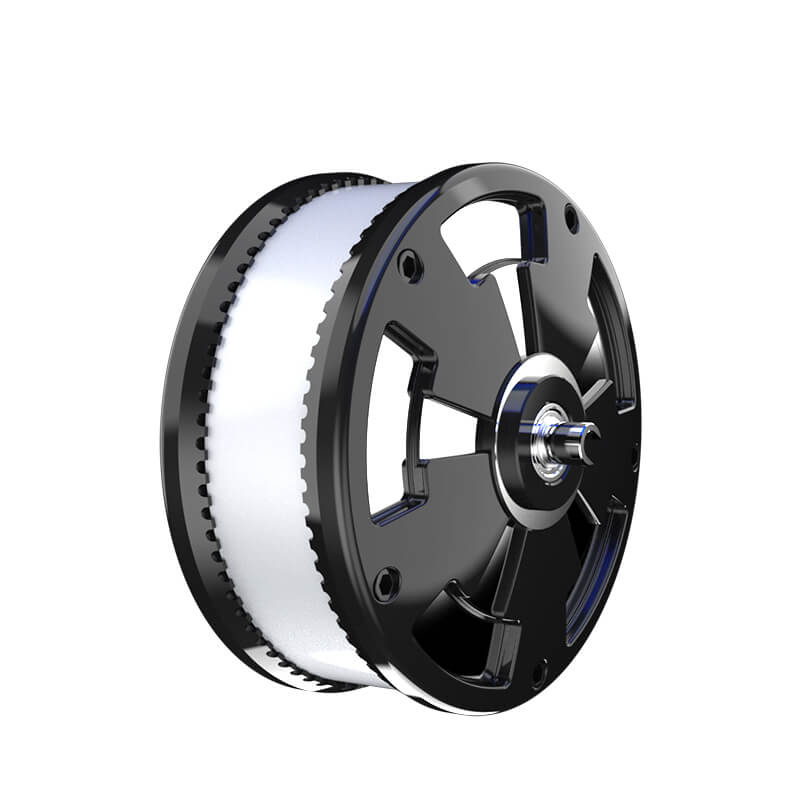Applications of Servo Motor: Unlocking Precision Across Industries
In a rapidly advancing world where technology pushes the boundaries of what’s possible, servo motors have emerged as essential components powering a vast array of applications. Their ability to deliver precise control of angular or linear position, velocity, and torque makes them indispensable in fields ranging from manufacturing to healthcare. But what exactly makes servo motors so versatile, and how are they transforming different sectors?

Understanding the Basics of Servo Motors
Before diving into their applications, it’s helpful to understand what a servo motor is. Unlike standard motors that run continuously until powered off, servo motors are designed for precise control. They are typically part of a closed-loop system that includes a motor, sensors, and controllers, allowing for accurate positioning and speed regulation. This synergy delivers remarkable precision along with reliability—a combination that many industries find invaluable.
Servo motors are generally categorized into two main types: AC servo motors and DC servo motors. Both types are used based on the specific requirements of the application, such as speed range, torque, and complexity. Their smart integration in control systems offers unmatched responsiveness that makes them perfect for complex automation.
Robotics: The Backbone of Modern Automation
One of the most well-known applications of servo motors exists in robotics. Robots—whether industrial arms or humanoid machines—rely on servo motors for movement and dexterity. For instance, robotic arms used in assembly lines need to accurately position tools or parts to ensure seamless manufacturing processes. Servo motors enable these robots to perform complex movements with high precision, enabling tasks like welding, painting, or intricate assembly.
In humanoid robotics, servo motors control eye movements, finger articulations, and even facial expressions, bringing machines closer to human-like interaction and responsiveness. As robot systems become more sophisticated, the importance of advanced, high-torque, and rapid-response servo motors continues to grow.
Industrial Automation and Precision Manufacturing
In manufacturing, automation is the beating heart of efficiency, and servo motors fuel this revolution. Machines like CNC (Computer Numerical Control) machines and robotic welding systems depend heavily on servo motors. These motors manage axes of movement, ensuring everything from cutting to assembly occurs with exactitude.
For example, in CNC machining, servo motors control the position of the cutting tool and workpiece, allowing the creation of complex parts with extremely tight tolerances. This precision minimizes waste, reduces manufacturing time, and improves overall product quality.
Similarly, in material handling, servo-driven conveyor systems automatically sort and route products with minimal human intervention, boosting throughput and safety. The enhanced control provided by servo motors means that systems can adapt quickly to different tasks or product sizes, making factories more flexible and responsive.
Aerospace: Extending Control to the Skies
In aerospace technology, servo motors have found critical applications in aircraft and spacecraft systems. The control surfaces of airplanes—such as ailerons, elevators, and rudders—require precise adjustments for maintaining stability and maneuverability. Servo actuators, which incorporate servo motors, provide the necessary fine control for these surfaces.
Moreover, modern avionics and spacecraft systems rely on servo motors for antenna positioning, satellite dish alignment, and robotic satellite servicing. Their quick response time and accuracy are vital in extreme conditions, where even minor deviations can have outsized consequences.
In addition, unmanned aerial vehicles (UAVs) and drones utilize servo motors in its flight control systems. Whether adjusting rotor angles or camera gimbals, servo motors facilitate stable flight and sharp imagery capture that is important for both military and commercial applications.
Marine and Automotive Industries: Navigating New Horizons
In the marine industry, servo motors power automated rudder control systems, hatch automation, and precision steering mechanisms. These systems improve safety, ease of operation, and adaptability in complex marine environments, from large cruise ships to autonomous boats.
Automotive technology has also adopted servo motors extensively, especially in electric vehicles (EVs). Power steering systems, active suspension, and advanced driver-assistance systems (ADAS) benefit from the responsive control that servo motors provide. For instance, electronic power steering (EPS) uses servo motors to adjust steering feedback, offering a more adaptable and energy-efficient experience compared to traditional hydraulic systems.
Medical Equipment: Enhancing Precision in Healthcare
In the medical field, servo motors are integral to many equipment types. MRI machines, robotic surgical tools, and automated laboratory analyzers all depend on precise motion control. Robotic surgical systems, such as the da Vinci Surgical System, utilize servo motors to provide surgeons with highly accurate instrument movements, minimizing invasiveness and improving patient outcomes.
Likewise, in diagnostic imaging, servo motors control the movement of imaging components, ensuring clear, detailed results. This level of control and precision is critical for accurate diagnoses and effective treatments.
Electronics and Consumer Goods
You might not immediately think of servo motors when considering everyday electronics, but they have subtle yet impactful applications. In consumer electronics like camera autofocus mechanisms or high-end drones, servo motors determine the speed and accuracy of motion, enhancing user experience.
In entertainment and gaming, servo motors are used in simulation devices, robotic toys, and animatronics, bringing dynamic and interactive experiences to life.
Conclusion of Part 1
Servo motors are truly versatile components that are shaping the future across numerous sectors. Their ability to combine speed, precision, and power unlocks potential in automation, robotics, aerospace, medicine, and more. As technology continues to evolve, the applications of servo motors are set to expand even further, fostering innovations that we are only beginning to imagine.
Leveraging innovations in modular drive technology, Kpower integrates high-performance motors, precision reducers, and multi-protocol control systems to provide efficient and customized smart drive system solutions.




































